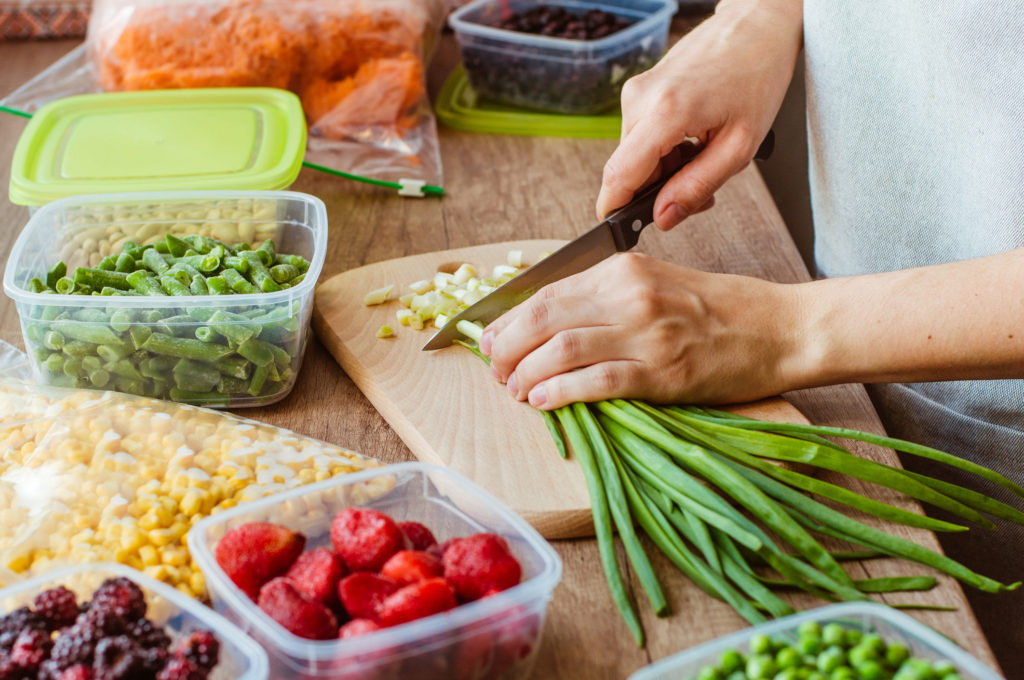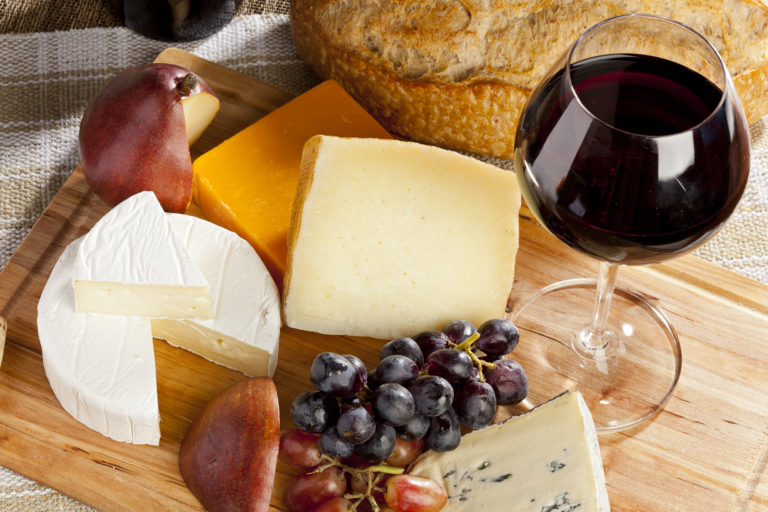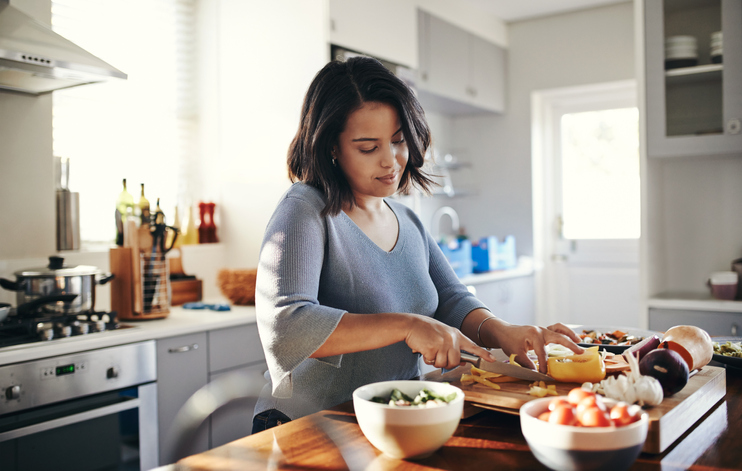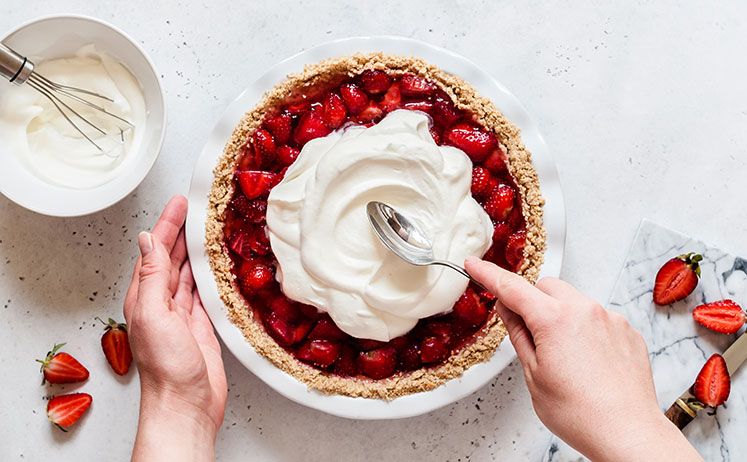Household food waste is a problem right here in Canada and BC. Learn how you can help prevent household food waste with these easy tips.
Feeding the planet’s growing population is a concern that will likely affect future generations, especially because almost one billion people worldwide do not currently have enough food. But did you know that approximately one-third of all food produced globally is wasted? That’s equal to roughly 1.3 billion tonnes of food per year that could feed humans across the globe. In North America, the average amount of food waste per person is estimated to be between 95-115 kg each year.1
What causes food to be wasted?
There are different stages in the life cycle of food where waste can occur. When food is lost in the supply chain at some point between producer to market, this is called food loss. Food loss often involves big-picture problems and can occur before the food is harvested, during processing, and while in transport.
Food waste, on the other hand, is when safe and nutritious food is discarded or used in alternative (non-food) ways, rather than for human consumption. This can happen due to cosmetic imperfections, misunderstanding of “best-before” dates, or even simply having excess food on hand in restaurants or our homes.2
Is it a problem in Canada and BC?
You might find results from the National Zero Waste Council’s 2017 research shocking: of the food Canadians throw away each day, most of this waste is avoidable – a whopping 63% could have been eaten!3 Vegetables and fruit account for 45% of this avoidable food waste. In total, almost 2.2 million tonnes of edible food is wasted every year in Canada. This is approximately 140 kg per Canadian household on average—an expense of around $1,100 worth of food per year for one family.
Food waste isn’t just about throwing edible items in the garbage—it also wastes money, along with the energy, water and other resources used to produce that food. In BC, over 25% of the household waste that ends up in landfills comes from compostable food waste, which releases environmentally harmful greenhouse gases.4 To learn more about why this is a problem watch this short, helpful video.
How can I prevent food waste in my household?
It’s a lot easier than you might think to begin reducing your household food waste today. Follow these easy tips that benefit your bank account and the planet.
Shop intentionally
- Plan meals and make a weekly shopping list ahead of time. Challenge yourself to stick to your list as closely as possible. You can always make a quick second trip later if you need to buy more.
- Avoid shopping in bulk for fresh ingredients. For foods that can be stored in the pantry or freezer, only buy what you have room for.
Store wisely
- If you notice bread is about to go bad, move it to the freezer.
- Break up bananas from the bunch and store them separately (but avoid placing them next to apples). This will slow down the ripening process.
- View this handy infographic to learn the best way to store foods in your fridge, and this comprehensive guide to effective freezer use.
- If you’re unsure how to best store a particular food item, take a moment to look it up! The answer to preventing food waste is usually at your fingertips. Here is a great place to start.
Use what you have on hand
- If you’ve bought vegetables and fruit to snack on, wash, dry and cut them up right away, so they’re more likely to actually be eaten.
- Meals that you’ve prepared last longer than fresh, individual items. If you notice you have items such as vegetables, meat or dairy on hand that are about to go bad, use them to cook a meal that can be stored in the fridge or freezer until you’re ready to enjoy it.
- No plan for dinner? Take a look at what you have on hand and search for a recipe online using those ingredients. Better Together is one of our favorite sites for recipe ideas that can be cooked and enjoyed by the whole family!
Remember to compost your food scraps
- As a last resort for food you aren’t able to use up, many cities in BC offer curbside collection for food scraps along with yard trimmings, such as the City of Vancouver’s Green Bin Program. If you’re not already using this service, contact your city’s office or visit its website. Be sure to familiarize yourself with the process, rules and pick-up dates.
- If your city or town doesn’t offer this service, consider composting in your own backyard. Composting improves the quality of your soil, an obvious benefit for gardeners. Visit this website to learn how to get started.
Let’s all do our part to keep BC beautiful and help create a sustainable future. Challenge yourself to choose at least one of the tips above today and make it a habit. Remember, the best way to reduce food waste is to prevent it from happening in the first place.
By Sara Patenaude, Dietetic Intern, with Carmen Gorlick, R.D.
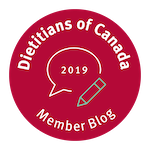
References
- Food and Agriculture Organization of the United Nations. Key facts on food loss and waste you should know [Internet]. fao.org. 2019 [cited 2019 Jan 31]. Available from: http://www.fao.org/save-food/resources/keyfindings/en/
- Food and Agriculture Organization of the United Nations. Food Loss and Food Waste [Internet]. Food and Agriculture Organization of the United Nations. 2019 [cited 2019 Feb 4]. Available from: http://www.fao.org/food-loss-and-food-waste/en/
- Love Food Hate Waste Canada. Food Waste in Canada [Internet]. 2018 [cited 2019 Feb 4]. Available from: https://lovefoodhatewaste.ca/about/food-waste/
- Province of British Columbia. Food & Organic Waste [Internet]. 2019 [cited 2019 Feb 4]. Available from: https://www2.gov.bc.ca/gov/content/environment/waste-management/food-and-organic-waste
